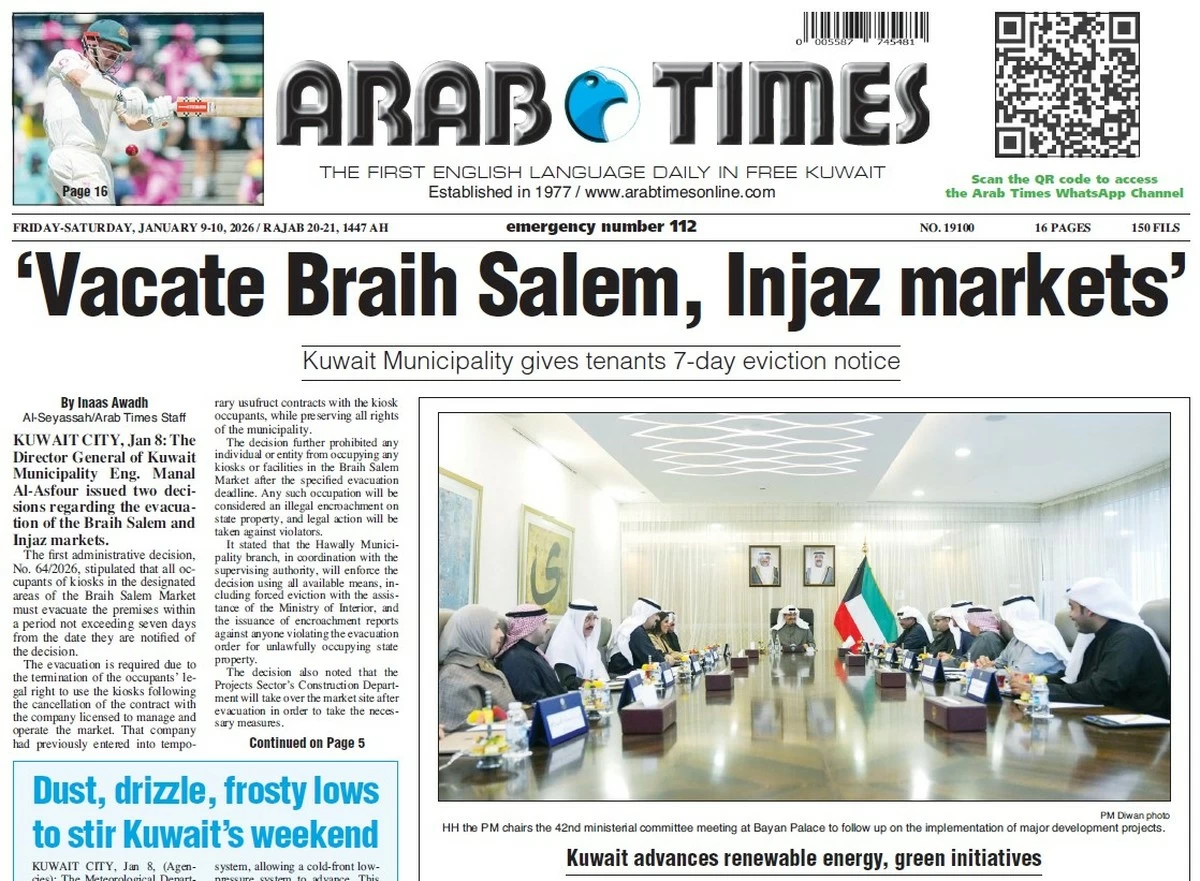30/06/2025
30/06/2025
IN the early 1980s, I enrolled my children in Al-Bayan School. However, circumstances required special education for my eldest son due to his health condition, which has remained largely unchanged for over 40 years. After moving to Britain, despite the cultural differences, the new surroundings, and the almost hostile environment they faced, my children performed well and achieved good grades. Perhaps their success stems from the excellent educational foundation they received at Al- Bayan School, which, along with its sister institutions - the British School and the American School - was, and perhaps still is, one of the best providers of quality education in Kuwait.
For context, St. Hilda’s School, which my sons attended in Britain, was a distinguished institution serving middle-class and affluent Jewish students, something I discovered later. What applies to education also applies to nearly every other sector. I believe that while the private sector can achieve a high level of mastery, the public sector often falls short in comparison. For example, in the United States, the most advanced and complex activities, such as space exploration, satellite launches, and similar projects, are contracted out by NASA to private companies.
This approach enables NASA to consistently deliver the best results at the lowest cost. It is widely acknowledged that governments are often inefficient contractors and poor managers. What I want to emphasize is that private education, especially distinguished institutions, has proven over more than half a century that its outcomes far surpass those of public schools. American universities, including Princeton University, used to send interviewers to personally assess applicants and select the most outstanding private high school graduates without hesitation or prior standardized testing, relying solely on these interviews.
Therefore, some experts believe that developing education requires pursuing two parallel paths. The first is continuing to implement the Minister of Education’s plan to develop curricula, raise teaching standards, and eliminate political partisanship from the education system. The second parallel path is to partner with distinguished private high schools by contracting with their management to utilize vacant public school buildings in residential areas for reasonable rents. The revenue generated would help finance a significant portion of tuition fees for students who cannot afford to pay. This proposal is supported by the fact that public school buildings in some residential areas have become largely deserted, as residents increasingly prefer to enroll their children in private schools, even if these schools are located far from their homes. If this proposal is implemented, it will achieve the following:
1. Significantly reduce traffic congestion around private schools in areas such as Hawally, Jabriya, and Salwa.
2. Provide quality education to a larger percentage of students whose families cannot afford private school fees.
3. Redistribute peak-hour traffic pressures over a wider geographic area by situating private schools in typical residential neighborhoods, easing the burden on parents who currently have to transport their children to distant schools.
4. Rehabilitate dozens of vacant educational buildings in residential areas.
5. Alleviate pressure on both private and public schools, as many citizens will continue to prefer public schools. This will enable the Ministry of Education to retain qualified teachers and remove ineffective educators and administrators.
Most importantly, it will expand access to quality education for the greatest number of students. These are not new ideas but rather a brief summary or continuation of studies previously discussed at the Supreme Planning and Development Council. However, the inability or unwillingness of successive education ministers to take on new responsibilities has left this unique proposal neglected, becoming a burden none were willing to carry. Will His Highness the Prime Minister and His Excellency the First Deputy Prime Minister rescue this proposal, retrieve it from the closed drawers, and breathe new life into it?
By Ahmad alsarraf
email: [email protected]



